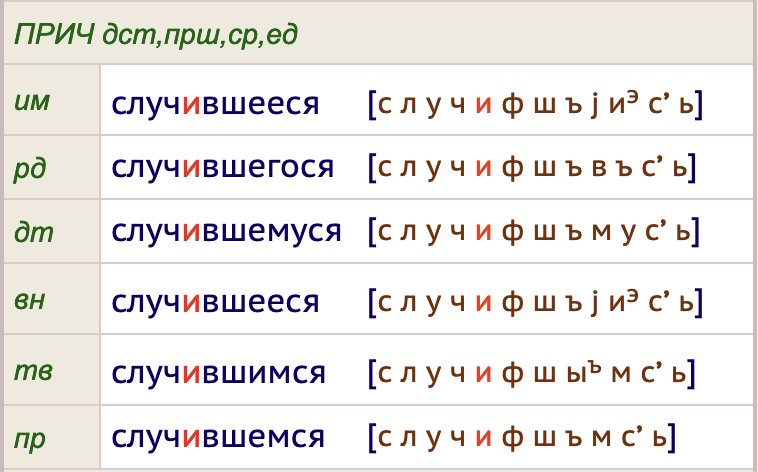Grammatically and morphologically speaking, what kind of word is this? "случи́вшемся" in the following sentence:
Поговори́ с сы́ном о случи́вшемся.
ChatGPT says: The word "случи́вшемся" is a past passive participle in the prepositional case, derived from the verb "случиться," which means "to happen" or "to occur." In the prepositional case, the word can be translated as "about the happened" or "about the occurred (event)."
However I can't tell if the AI is hallucinating, because after reading Wade's " A Comprehensive Russian Grammar" section on Participles, I still can't figure out how this word was derived. Can someone confirm that the AI is correct? Is it past perfective?
Would I then accurately translate it as: "Talk to the son about what has happened."?
